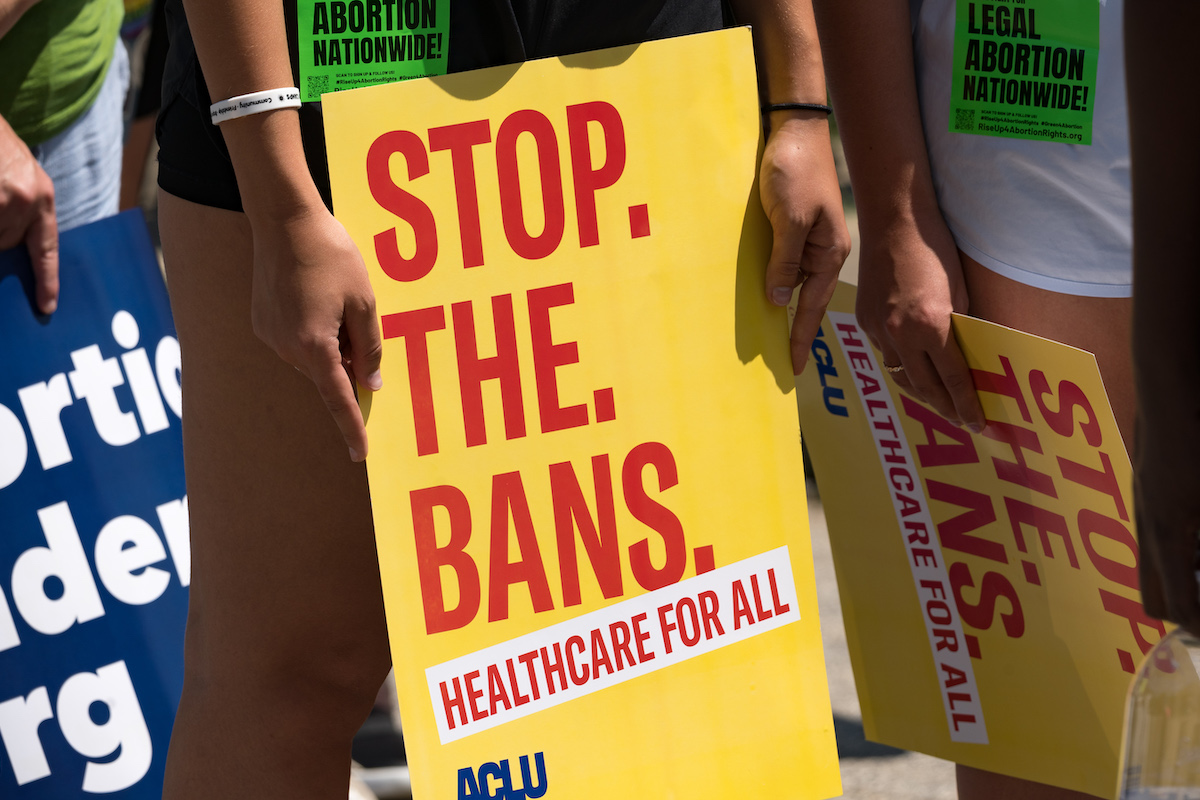Last year, Kansas voters fought a good fight and retained their constitutionally protected right to abortion. But that hasn’t stopped anti-abortion activists from trying to deny Kansans (and beyond) that right.
A Kansas judge, Judge K. Christopher Jayaram, has temporarily blocked a number of impediments to abortion access, rightfully calling them “a thinly veiled effort to stigmatize the procedure and instill fear in patients that are contemplating an abortion, such that they make an alternative choice, based upon disproven and unsupportable claims.”
Those restrictions included a 24-hour waiting period that, according to KCUR public radio, “providers say has resulted in hundreds of women being denied abortions.” They also include mandatory marriage counseling, additional waiting periods at other stages of the process, and requiring providers to share medically inaccurate information with their patients, like the totally baseless and potentially dangerous notion that medication abortions can be reversed.
This type of restriction is nothing new—in fact, many of these specific Kansas restrictions have been on the books since at least the 1990s. As Planned Parenthood writes:
Targeted restrictions on abortion providers (TRAP) laws are costly, severe, and medically unnecessary requirements imposed on abortion providers and women’s health centers. Often pushed by anti-abortion politicians under the guise of “women’s health,” the real aim of TRAP laws is to shut down abortion providers and make it more difficult for people to access abortion.
In Kansas, officials will not be able to enforce these restrictions while a lawsuit brought by abortion providers moves forward. That means they’re blocked until at least June 2024, when the next hearing in the case is scheduled. With the recent and growing decimation of reproductive freedom, the win against sneaky restrictions by anti-abortion activists is a great sigh of relief for many Kansans.
(featured image: Megan Varner/Getty Images)









Published: Nov 1, 2023 03:53 pm